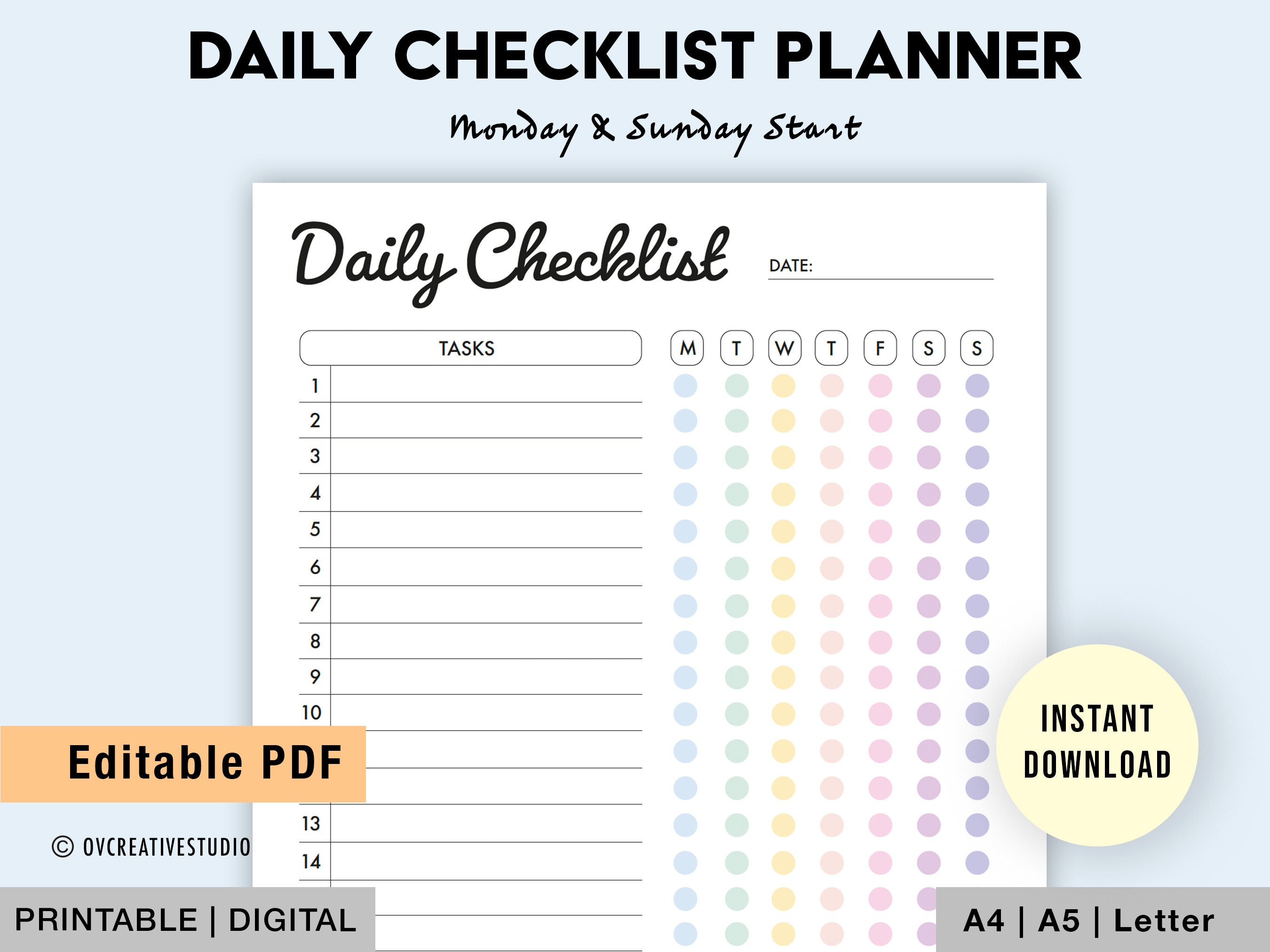The Daily Keeper - What's In A Word
Every single day, we move through life with routines, big and small, that shape who we are. There is a quiet rhythm to our existence, a kind of constant presence that guides our steps from morning till night. This steady beat of life, in a way, feels a bit like having a "daily keeper" – something that looks after the regular flow of things, making sure our days have a certain shape and feel.
You might not often think about it, but the words we use to talk about these routines are quite interesting. They help us make sense of time, to organize our thoughts, and to share what we do with others. It's almost as if our language itself has its own ways of keeping track of the everyday, giving names to the bits and pieces of our schedules. We just pick up these words and use them without much thought, yet they hold so much about how we see our hours and days. So, how do these words come to be?
Consider how we speak of time passing. We have words like "yearly" for a whole year, or "monthly" for a month, and "weekly" for a week. These seem to follow a pretty clear pattern, don't they? But then, when we get to the smallest of these common measures, the day, we say "daily." It's a little different, isn't it? This shift in how we form the word for "day" compared to others is, in some respects, quite a curious thing, suggesting a unique importance or perhaps a distinct feeling connected to our very own day-to-day happenings.
Table of Contents
- Why Do We Say "Daily" - A Look at Language Habits?
- What Makes "The Daily Keeper" of Words So Special?
- Do Our Words Keep Pace With Our Days?
- The Rhythm of Time and The Daily Keeper's Glossary
- What About "Every Other Day"? - The Daily Keeper's Choice?
- The Unspoken Rules of The Daily Keeper's Communication
- How Do Daily Orders Shape Our Reality?
- The Daily Keeper's Role in Morale and Meaning
Why Do We Say "Daily" - A Look at Language Habits?
It's interesting to think about how words get put together, especially when they describe something as regular as time. We see "year" turn into "yearly," and "month" into "monthly," then "week" becomes "weekly." These forms seem to follow a rather steady way of building up words. But then, when it comes to "day," it changes to "daily," with that extra 'i' in there. This small difference can make you pause and wonder why, you know, why this one word takes a slightly different path when describing something that happens every day.
This slight shift in word formation for "daily" might just show us how special the concept of a single day is in our shared experience. A day is not just a measure of time; it is the fundamental unit of our lives, where most of our happenings take place. It's where we eat, sleep, work, and connect with people. So, perhaps the word "daily" itself, with its unique sound, reflects this central role, a sort of verbal nod to the importance of the everyday. It's almost as if the language itself wants to give the day a little bit of a different feel, a unique way of being talked about.
What Makes "The Daily Keeper" of Words So Special?
When we think about "the daily keeper," we might think of someone who tends to a garden each day, or perhaps a person who makes sure a business runs smoothly every twenty-four hours. In the context of words, "the daily keeper" could be the way our language itself holds onto its patterns, even when they seem to break. The way "daily" is formed, for instance, is a little quirk, a unique feature in a generally consistent system. This makes it, in a way, quite special.
The words we use for time, like "hourly," "daily," "monthly," "weekly," and "yearly," they suggest a general approach to how we make words that describe when things happen. Yet, as we've seen, this pattern isn't always perfectly kept, especially for shorter periods. This slight difference for "daily" might point to how our spoken language often favors what sounds natural over what is strictly regular. It's as if the common use of a word, its everyday feel, sometimes shapes its form more than any strict rule. This is how language, our own daily keeper of communication, often works, favoring ease of use.
Do Our Words Keep Pace With Our Days?
Think about how quickly things change, yet some parts of our language stay quite steady. We have these words for time, and they generally work well for us. But sometimes, you find a word that doesn't quite fit the usual way things are done. For instance, the way "daily" is made, compared to "yearly" or "monthly," shows a small break in the pattern. This raises a question: does our language always keep up with our need for perfect consistency, or does it sometimes just go with what feels right?
It seems that our language, in some respects, is a living thing, always adapting, but also holding onto old ways. The way we talk about the passing of time, from hours to years, generally follows a sensible path. Yet, for smaller chunks of time, like a day, the word form shifts a little. This might be because the day is such a constant, a truly fundamental unit, that its word form simply settled into a shape that felt right to people speaking it over a very long time. It’s a subtle reminder that language has its own flow, its own natural movement, which doesn't always follow a strict set of rules.
The Rhythm of Time and The Daily Keeper's Glossary
Our lives have a rhythm, a beat that comes with the turning of each day. We wake, we work, we rest, and then we do it again. This steady pulse is, in a way, overseen by "the daily keeper," that unseen force that helps us maintain our routines. Our words for time, like "hourly," "daily," and "weekly," are part of this rhythm. They help us name and organize the flow of our existence. They are the tools in our personal glossary for keeping track of what happens when.
It's fascinating to consider how these words, despite their slight differences in how they are built, still work together to give us a complete picture of time. "Hourly" suggests quick, frequent actions, while "yearly" speaks of grander, longer-term events. "Daily," with its distinct form, points to the steady, regular happenings that make up the bulk of our lives. This collection of words, in a way, forms a kind of verbal toolkit, helping us to describe and understand the steady march of time. It's almost like a helpful friend, always there, giving us the right word for the moment.
What About "Every Other Day"? - The Daily Keeper's Choice?
Sometimes, we want to talk about something that doesn't happen every single day, but rather every second day. In regular conversation, we simply say "every other day." It's clear, it's easy to say, and everyone knows what it means. This common phrase is a prime example of how our language prioritizes straightforward communication over overly formal terms. It's the kind of phrase that "the daily keeper" of our conversations would prefer – simple, direct, and widely understood.
Now, technically, there's a word like "bidiurnal" that could be used for "every other day." It appears someone might have even made up this word for a specific purpose. However, in our everyday chat, you'd almost never hear it. This really shows how much we favor natural, flowing speech. People generally choose words and phrases that feel right and are easy for others to grasp quickly. This preference for simplicity in daily talk is, in some respects, a very strong current in how we speak, a clear choice made by the collective "daily keeper" of our shared language.
The Unspoken Rules of The Daily Keeper's Communication
When we talk, we follow many unspoken rules. We choose words that make sense to the people we are speaking with, and we tend to use phrases that are common and familiar. The choice to say "every other day" instead of "bidiurnal" is a good example of these rules in action. It shows that clarity and common understanding often win out over strict correctness or formal structure. This is how "the daily keeper" of our conversations helps us connect with one another effectively.
These unspoken rules are what make our conversations flow naturally. They guide us to pick words that are not just accurate, but also feel good to say and hear. We learn these rules by simply living and talking with others, picking up on what works and what doesn't. It's a bit like learning to ride a bike; you don't need a rulebook, you just feel your way through it. This natural way of communicating is, in a way, a core part of how we manage our daily interactions, making sure our messages get across without a fuss.
How Do Daily Orders Shape Our Reality?
Words have a real impact, especially when they come as part of a set of instructions or rules. Think about "daily orders" – these are the instructions that guide people's actions day in and day out. When a specific phrase from these orders, such as "There will be no leave until morale improves," is highlighted, it shows just how much weight certain words can carry. This particular phrase, in fact, has a very direct and strong message, shaping the daily reality for those who hear it.
The impact of such words is quite significant. When someone underlines a phrase like "no leave until morale improves," it suggests that these words are not just information; they are a direct statement of intent, a clear directive that affects people's daily lives and their very feelings. It shows how language, when used in a commanding way, can really influence the atmosphere and the general mood of a group. This is where "the daily keeper" of authority uses words to shape behavior and outlook, making them a very powerful tool indeed.
The Daily Keeper's Role in Morale and Meaning
The "daily keeper" of a group's spirit often uses words to maintain a certain feeling or direction. The phrase "no leave until morale improves" is a good example of this. It's a statement that connects two very different things – time off and a group's overall happiness – and ties them together with a clear condition. This type of communication, in some respects, aims to bring about a change in people's attitudes by setting a clear goal for them to reach.
Words like these are not just about giving instructions; they are about giving meaning to daily actions and setting a tone. When such a strong message is given, it becomes a part of the daily routine, something that people think about as they go about their tasks. The way words are put together, and the way they are delivered, can truly shape how people feel about their situation and how they respond to it. It's a clear illustration of how language, used consistently, can be a powerful force in shaping the daily lives and attitudes of a group, acting as a kind of constant presence.
This article has explored how the words we use for time, like "daily," have their own unique forms and how common phrases, such as "every other day," often win out over more formal ones. We also looked at how powerful words in "daily orders" can be, influencing morale and shaping people's everyday experiences. It seems that our language, much like a steady "daily keeper," quietly oversees our routines and shapes how we see the world, one word at a time.



Detail Author:
- Name : Dr. Oliver Jenkins
- Username : jlynch
- Email : aurore48@yahoo.com
- Birthdate : 1984-10-03
- Address : 727 June Dale Apt. 078 Ratkeland, UT 71157
- Phone : 818.514.8025
- Company : Brakus Group
- Job : Oil Service Unit Operator
- Bio : Fugit illum aut ut. Tempora cum omnis laboriosam placeat qui aut magni et. Vero distinctio eum dolores libero cum.
Socials
linkedin:
- url : https://linkedin.com/in/sonya.koelpin
- username : sonya.koelpin
- bio : Sed nobis eaque unde quo debitis inventore.
- followers : 5457
- following : 613
facebook:
- url : https://facebook.com/sonya3939
- username : sonya3939
- bio : Enim excepturi quo non accusantium.
- followers : 697
- following : 2662
tiktok:
- url : https://tiktok.com/@sonya.koelpin
- username : sonya.koelpin
- bio : Ex ipsum occaecati omnis aliquam qui quas dolores.
- followers : 2723
- following : 1300
twitter:
- url : https://twitter.com/sonyakoelpin
- username : sonyakoelpin
- bio : Aut dolore porro blanditiis eaque velit voluptas. Quia est eos a explicabo cumque eius quaerat labore. Dignissimos a corrupti cum molestiae molestiae.
- followers : 4980
- following : 1452
instagram:
- url : https://instagram.com/koelpins
- username : koelpins
- bio : In dolor dolorem ut architecto placeat debitis. Fugiat esse et iste.
- followers : 5822
- following : 1849